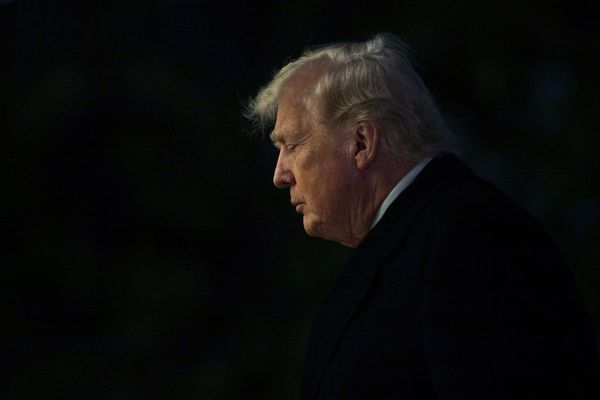
Thousands of international troops are withdrawing from Mali amid surging violence, growing Russian influence and an acute humanitarian crisis.
On Wednesday Germany became the latest country to end its participation in the UN peacekeeping mission in the unstable west African country. Earlier this week, British officials said that 300 British soldiers sent in 2020 to join the United Nations force would be returning earlier than planned.
In the decade since they were first deployed, the UN peacekeepers and thousands of French troops have been unable to prevent swathes of Mali falling under the control of an Islamic extremist insurgency linked to groups including al-Qaida and Islamic State.
Earlier this month, President Emmanuel Macron announced the formal end of the French deployment.
James Heappey, a British defence minister, said that two coups in three years had undermined international efforts to advance peace and that the Malian government was now working with the Russian mercenary group Wagner, which he accused of mass human rights abuses. “The Malian government’s partnership with the Wagner group is counterproductive to lasting stability and security in their region,” Heappey told parliament.
Mali’s elected president, Ibrahim Boubacar Keita, was toppled in August 2020 by officers angered at the failures to roll back the jihadist insurgency.
Last year, the military forced out an interim civilian government and tilted dramatically towards Moscow, concluding an agreement in which about 1,000 fighters from the Kremlin-linked Wagner group have been deployed to bases across much of Mali and which receive Russian weapons.
Relations with France, Mali’s former colonial power and traditional ally, deteriorated rapidly after the military takeover, while reports of violence and atrocities against civilians surged.
Heappey said the political context made it impossible for the British deployment to continue. “This government cannot deploy our nation’s military to provide security when the host country’s government is not willing to work with us to deliver lasting stability and security,” he told parliament.
“Through … our wider experience in Iraq and Afghanistan, we are clear that the military instrument should not be deployed on counterinsurgency or countering violent extremism missions unless there is a clear and compelling commitment towards political progress,” said Heappey.
Bamako has previously denied turning to Wagner’s paramilitaries, acknowledging only the support of Russian military “instructors”. The consequences of the regime’s alignment with Moscow, however, have been very clear, with analysts suggesting the growing obstruction of the UN force is part of a broader strategy.
Heappey said the regime in Bamako had actively sought to interfere with the work of both French-led and UN missions.
German forces have been in Mali since 2013 with a presence of up to 1,400 soldiers as part of the UN mission, and have faced increasing difficulties in recent months. They have repeatedly had to suspend reconnaissance patrols after being denied the right to use drones and other aircraft to safeguard their troops.
Among African countries, Ivory Coast said it is now withdrawing its contingent too. Forty-six soldiers from Ivory Coast were accused of being mercenaries and have been detained for months.
The UN security council renewed its mandate for the UN peacekeepers in Mali for one year on 29 June, although the Malian government opposed requests to allow freedom of movement for rights investigators with the mission.
The operation is one of the UN’s biggest, with 17,557 troops, police, civilians and volunteers deployed. Popular hostility to the force, and to the French, has been intensified by activity on social media. Mali is among several countries targeted in recent years by Russian disinformation and influence operations.
“If the government was looking to Wagner for help in the information war, it can be happy with the results,” said Niagalé Bagayoko, president of the African Security Sector Network. “In the capital and on social media, they have won the opinion war against the west.”
Mali has been facing recurrent jihadist attacks since 2012, part of a broader surge in violence linked to Islamic militancy across the Sahel region, which has displaced more than 2.5 million people and killed more than 8,000 in 2022, according to ACLED, a monitoring group.
Most recently, tens of thousands were forced to flee their villages in Mali during apparent systematic attacks by Islamist armed groups aligned with the Islamic State in the Greater Sahara. The extremists have attacked dozens of villages and massacred scores of civilians in Mali’s vast north-east regions of Ménaka and Gao, which border Niger.
“Islamist armed groups in north-east Mali have carried out terrifying and seemingly coordinated attacks on villages, massacring civilians, looting homes and destroying property,” said Jehanne Henry, senior Africa adviser at Human Rights Watch. “The Malian government needs to do more to protect villagers at particular risk of attack and provide them greater assistance.”
The Wagner paramilitaries and the Malian forces appear unable to effectively combat the insurgents. Both have been accused of systematic human rights abuses, including a series of indiscriminate massacres.
“The people judge by the atrocities committed on civilians,” said Binta Sidibe Gascon, of Kisal, an NGO. “Since Wagner arrived … we are witnessing an exponential rise in the number of civilian victims.”







